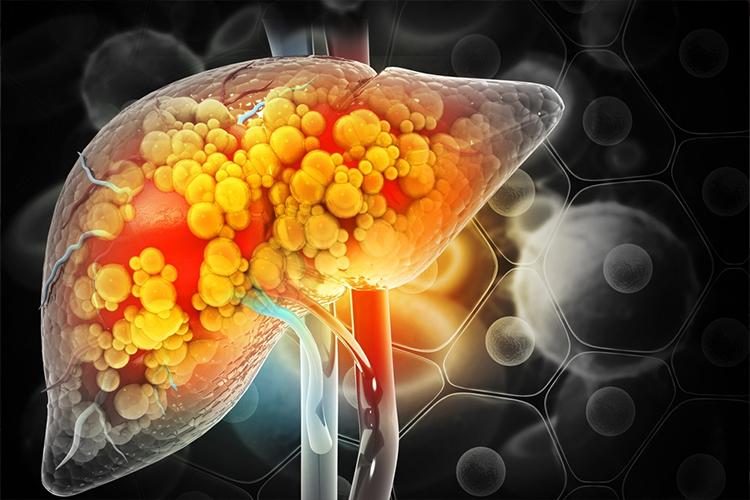Fatty Liver - Causes, Symptoms, Treatment, and Prevention
Jan 05, 2024

Fatty liver disease is a common condition that affects millions of people worldwide. It occurs when there is an accumulation of fat in the liver, which can lead to inflammation and scarring of the liver tissue. In this blog, we will discuss the causes, symptoms, treatment, risks, who can get it, and prevention of fatty liver disease. We will also discuss the role of diet in managing fatty liver disease and recommend Paras Healthcare for anyone seeking quality medical care for fatty liver disease.
Causes of Fatty Liver Disease :
● An unhealthy lifestyle, which includes a diet high in fat, sugar, and processed foods, is the primary cause of fatty liver disease.
● Alcohol consumption is also a leading cause of fatty liver disease.
● Obesity, insulin resistance, and genetics are other factors that can contribute to the development of fatty liver disease.
● A high intake of fructose, found in sugary drinks and processed foods, can lead to the development of non-alcoholic fatty liver disease.
● Insulin resistance can cause fat to accumulate in the liver, leading to the development of fatty liver disease.
● Genetics can play a role in the development of fatty liver disease, with some people being more susceptible to developing the condition than others.
● Certain medications, viral hepatitis, and rapid weight loss can also contribute to the development of fatty liver disease.
Symptoms of Fatty Liver Disease:
● Fatty liver disease is often asymptomatic, meaning that most people with the condition do not experience any noticeable symptoms.
● However, some common symptoms of fatty liver disease include fatigue, weakness, and abdominal pain or discomfort.
● Other possible symptoms include swelling or tenderness in the liver, jaundice (yellowing of the skin and eyes), and itching.
● In severe cases, fatty liver disease can lead to liver failure, which can cause symptoms such as confusion, abdominal swelling, and bleeding in the digestive tract.
● A liver transplant may be necessary in rare cases of advanced liver disease that cannot be treated with medication or lifestyle changes.
Fatty Liver Disease Treatment
1. Lifestyle changes: Losing weight, reducing alcohol consumption, and following a healthy diet are the primary lifestyle changes that can help manage fatty liver disease.
2. Weight loss: Losing just 5-10% of your body weight can significantly improve fatty liver disease. A combination of diet and exercise is the best way to achieve weight loss.
3. Alcohol consumption: Reducing or eliminating alcohol consumption is essential to manage fatty liver disease, especially if you have alcoholic fatty liver disease.
4. Healthy diet: A healthy diet rich in fruits, vegetables, whole grains, and lean protein sources can help manage fatty liver disease.
5. Medication: In some cases, medication may be prescribed to manage symptoms such as high blood pressure and high cholesterol.
Foods to Avoid with Fatty Liver Disease :
● Processed foods and sugary drinks should be avoided as they are high in calories and can lead to weight gain, which can worsen fatty liver disease.
● Alcohol consumption should be limited or avoided completely as it can lead to further liver damage.
● Foods high in saturated and trans fats, such as fried foods and fatty meats, should be avoided as they can contribute to the development of fatty liver disease.
● Instead, focus on consuming a healthy diet rich in fruits, vegetables, whole grains, and lean protein sources such as fish and chicken.
● It's also important to stay hydrated by drinking plenty of water and to avoid excess salt and sugar in your diet.
Who Can Get Fatty Liver Disease?
Fatty liver disease can affect anyone, but it is most common in people who are overweight, have diabetes, high cholesterol, or high blood pressure.
Prevention of Fatty Liver Disease:
● Maintain a healthy weight: Obesity is a significant risk factor for fatty liver disease, so maintaining a healthy weight through a balanced diet and regular exercise is crucial.
● Exercise regularly: Regular exercise can help to reduce body fat and improve insulin sensitivity, reducing the risk of developing fatty liver disease.
● Limit alcohol consumption: Excessive alcohol consumption is a leading cause of fatty liver disease, so it's important to limit alcohol intake or avoid it altogether.
● Follow a healthy diet: A healthy diet rich in fruits, vegetables, whole grains, and lean protein sources can help to prevent fatty liver disease by reducing the intake of unhealthy fats and sugars.
In conclusion, fatty liver disease is a common condition that can lead to serious health complications if left untreated. It is essential to seek medical attention if you experience any
symptoms of fatty liver disease. With proper treatment and lifestyle changes, fatty liver disease can be managed effectively, and you can reduce your risk of developing further complications. For anyone seeking quality medical care for fatty liver disease, we recommend Paras Health, which offers comprehensive diagnostic and treatment services to help patients manage fatty liver disease effectively and achieve a better quality of life.
Dr. Rajnish Monga
Chief – Gastroenterology
Paras Health, Gurugam










